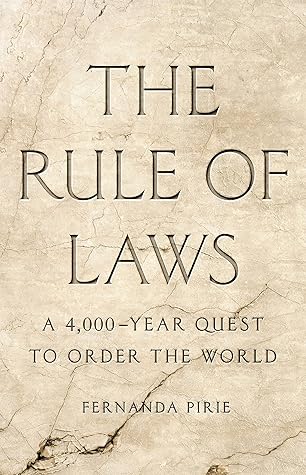Kindle Notes & Highlights
Read between
December 5 - December 25, 2021
Laws have also symbolized the societies that lawmakers have wanted to bring about, promising justice and fairness, a vision of civilization—usually that of a ruler or priest—as much as achieving anything concrete.
The simple technique of writing out general rules using abstract categories creates conceptual order, and this order can be a powerful symbol of justice.
In little more than three hundred years, law has come to be associated firmly with the nation-state.
Of course, state systems are not as comprehensive, effective, or coherent as our governments would have us believe.
Laws do not possess any inherent power for good or for evil. Over history, many legal projects have been thoroughly cynical and manipulative.
Once made explicit, laws are rules that people can quote, rely upon, and use to object to corruption and abuse.
European colonialists embarked on projects to administer the territories they had seized and imposed their own rules with little regard for ancient laws and customs, fairness, or justice. Indeed, they often stipulated that indigenous people remain outside the protective cover of the law. But eventually local elites were able to turn the new laws and legal principles against their colonizers in powerful arguments for independence. If laws spell out a ruler’s vision for the world and legitimate his power, they can also be used to curb or overturn it.
This is why, over the course of human history, tensions have repeatedly arisen between those who exercise political power and the scholars and judges who claim authority to declare what the law is.
Law can make a social vision concrete and explicit, holding it up for all to see. This may be the promise of a king, a religious elite, a community, or a state, and it may be the means by which they seek to legitimate power. But once made explicit, that vision has a life of its own. Publicizing rules and judicial precedents gives them a fixity, hence authority, of their own. This is why law can be both an instrument of power and a means of resisting it.
Even now in China, the idea of ‘the rule of law’ implies the obligation of government officials to abide by the state’s rules, rather than acting as an explicit constraint on party leaders.3 This is rule by law, not the rule of law.


